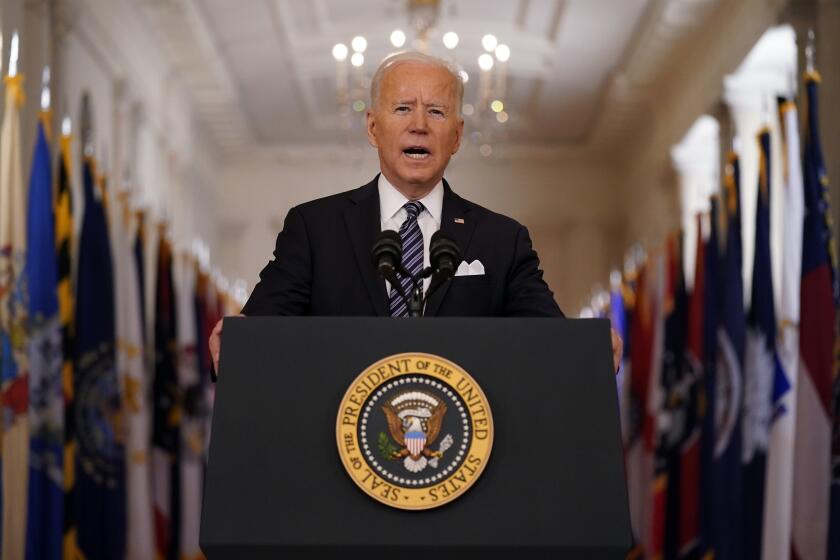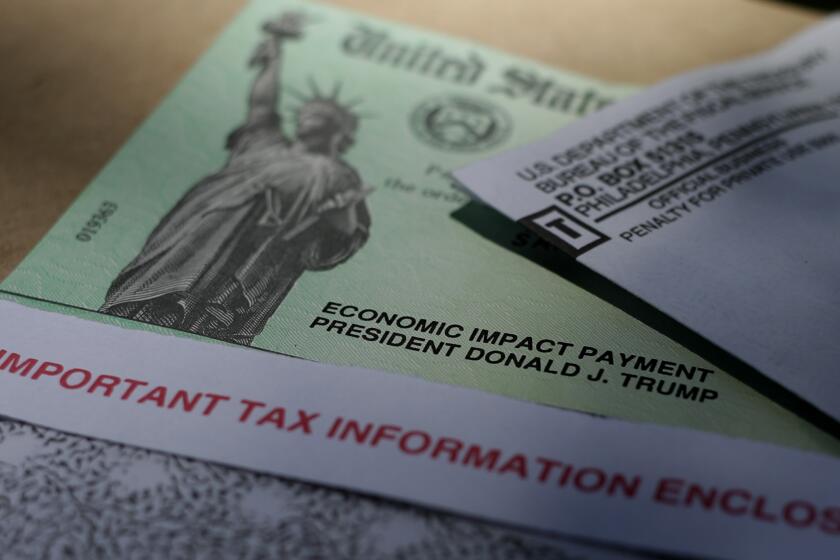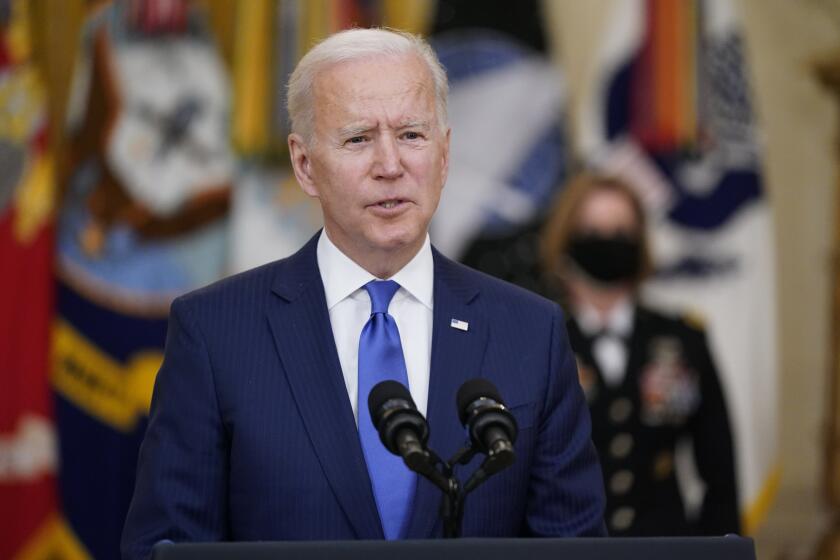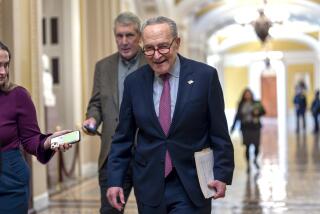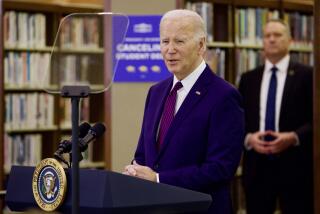Biden signs $1.9-trillion COVID-19 relief bill, a day earlier than expected

Biden signs the $1.9-trillion COVID relief package into law, authorizing a massive infusion of federal aid aimed primarily at working families.
WASHINGTON — President Biden signed a sweeping $1.9-trillion coronavirus relief package into law Thursday, authorizing a massive infusion of federal aid aimed primarily at working families.
“This historic legislation is about rebuilding the backbone of this country and giving people in this nation, working people, middle-class folks, the people who built this country, a fighting chance,” Biden said after signing the bill in the Oval Office, hours before he was to address the country in his first prime-time speech from the White House.
Biden had planned to sign the legislation into law Friday, but he and his advisors, who for weeks had emphasized the urgency of delivering $1,400 direct relief payments and extended unemployment benefits, announced just after 9 a.m. Pacific time Thursday that they didn’t want to wait any longer.
“The enrolled bill arrived last night — so @POTUS is signing it today,” Chief of Staff Ron Klain tweeted just after the White House added the Oval Office signing ceremony to the daily schedule. “We want to move as fast as possible. We will hold our celebration of the signing on Friday, as planned, with Congressional leaders!”
White House Press Secretary Jen Psaki said after the signing, “People can expect to start seeing direct deposits hit their bank accounts as early as this weekend.”
The American Rescue Plan, which comes just months after a $900-billion package that lawmakers approved late last year, amounts to one of the biggest government relief efforts in the country’s history. Cleared Wednesday by the House after passing the Senate on a 50-49 party-line vote last week, the legislation is more than twice the size of the $787-billion 2009 American Recovery Act. And it is the latest in a series of such aid packages since last spring that together have provided roughly $4 trillion in assistance for individuals, businesses, states and local governments.
After a grim winter, Biden seeks to foster — and benefit from — a surge of optimism about the pandemic, the economy and national unity.
Its enactment comes one year to the day since the World Health Organization declared the coronavirus outbreak a pandemic. The outbreak has devastated the economy, costing some 10 million jobs and claimed more than 529,000 lives in the U.S. With the enactment of the latest relief package, Biden said he would “launch the next phase of the COVID response and explain what we will do as a government and what we will ask of the American people.”
Despite having earned no Republican support, the latest package is broadly popular with the country, with about 3 in 4 Americans supporting its passage, according to recent polling. No Republicans are expected to attend the White House celebration Friday, Psaki said.
The legislation provides $1,400 direct payments to individuals making up to $75,000 annually, $350 billion in aid to state and local governments and $14 billion for vaccine distribution. It also provides $130 billion for schools to assist with safe reopening.
The White House has indicated that Biden plans to appoint a “czar” to oversee the implementation of the new law and the distribution of the direct relief and welfare benefits, but he had yet to select that individual prior to signing the bill.
The payments going out in the coming days, Psaki said, amounted to “just the first wave” of relief checks, which she noted would continue over several weeks.
The announcement that some payments would go out in just days offered another instance of the administration, which had initially committed only to relief going out some time in March, setting a modest goal only to quickly meet it.
The $1.9-trillion COVID-19 relief bill will benefit Californians at local, state and federal levels. Here’s how it will affect you personally.
The White House did the same thing with the projected vaccine timeline, stating initially that it wouldn’t have enough vaccine supply to immunize all Americans until late summer, before announcing this month that the goal would be achieved by May.
Biden’s stimulus bill also includes an additional $300 billion in weekly jobless benefits through Sept. 6 and, for one year, an expanded tax credit of up to $3,600 per child, initially distributed in monthly installments.
Biden and Vice President Kamala Harris are also planning to hit the road starting next week on a “Help Is Here” tour to promote the benefits of the package. Biden plans to travel to Bucks County, Pa., on Tuesday. Harris, meanwhile, will hold events next Monday and Tuesday in Las Vegas and Denver, respectively. Biden and Harris will also make a joint appearance in Atlanta on March 19.
Harris launched the administration’s promotional effort just moments after watching Biden sign the bill, holding a virtual roundtable with small business owners and labor leaders.
She thanked the participants for providing input about what they wanted in a relief package and emphasized the expected impact of the components, especially the child tax credit that she said “will lift half of America’s children living in poverty.”
The COVID-19 relief bill includes provisions Democrats have long sought on issues including health insurance premiums, child care and pensions.
More to Read
Get the L.A. Times Politics newsletter
Deeply reported insights into legislation, politics and policy from Sacramento, Washington and beyond. In your inbox three times per week.
You may occasionally receive promotional content from the Los Angeles Times.
